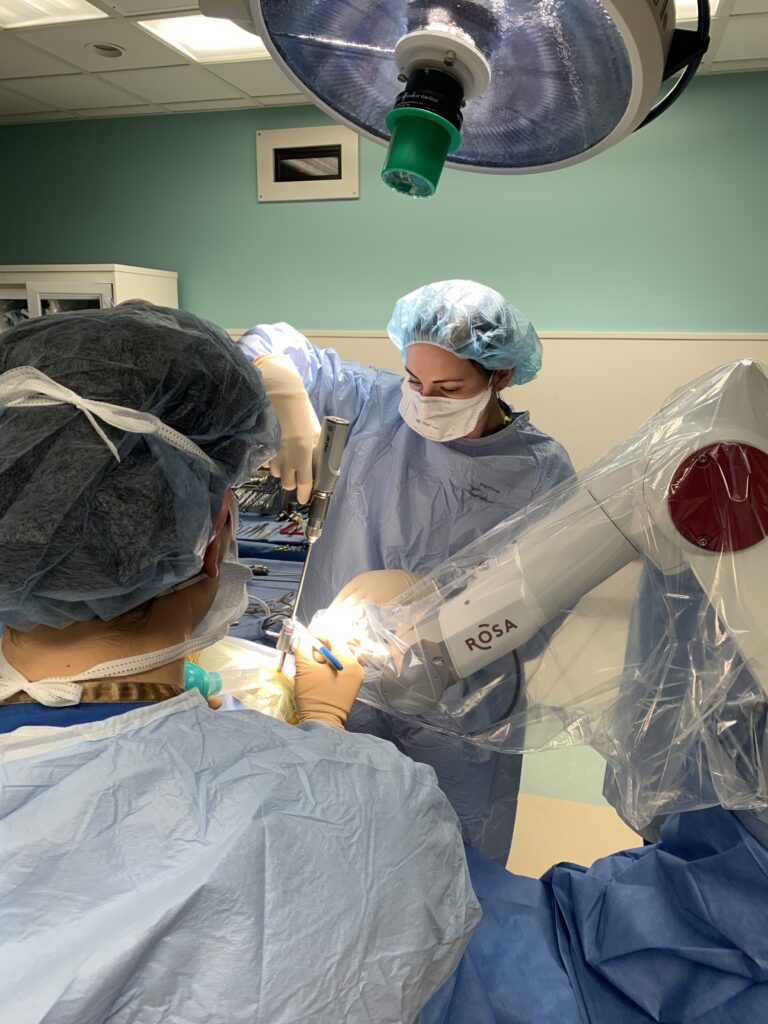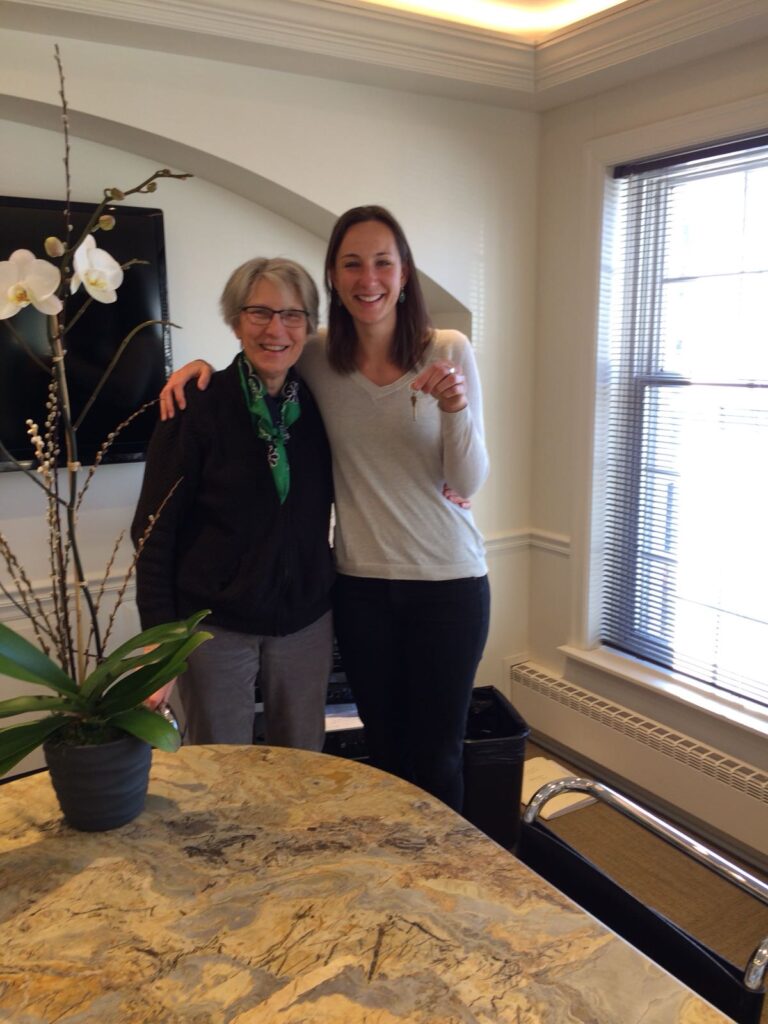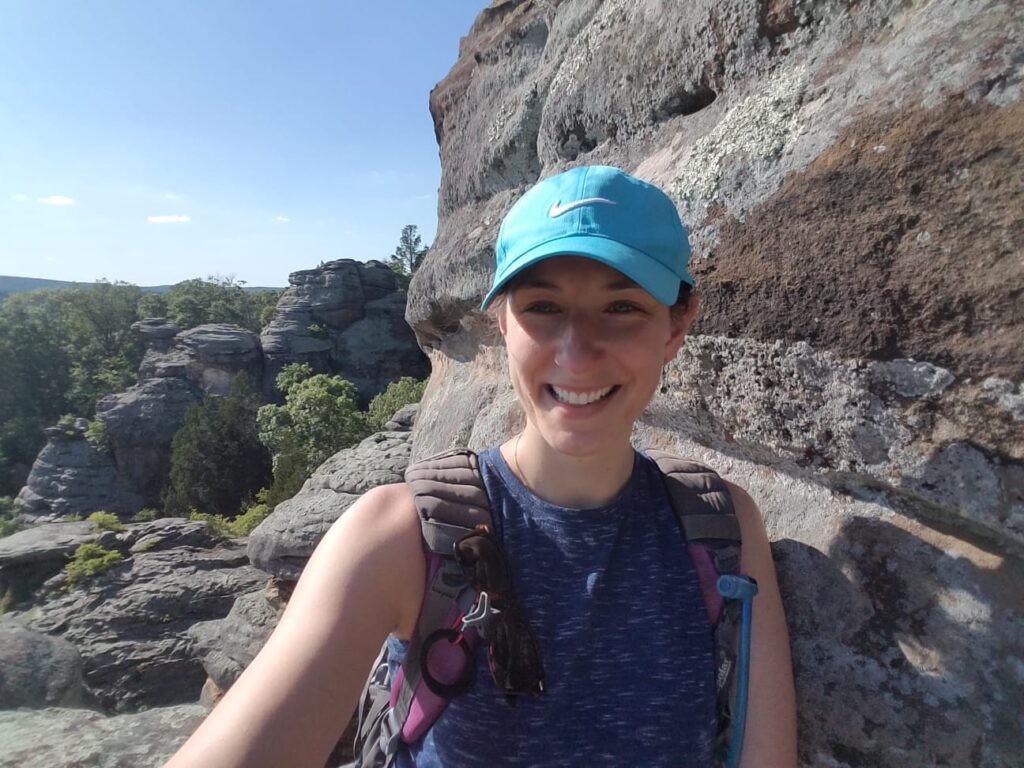Anja Srienc, MD, PhD, is a PGY 4 resident training in neurosurgery. A native Minnesotan, she also happens to speak three languages and has studied in Europe and Australia. She plans to go into academic medicine.
Q. Tell us a little about your background and why you’re pursuing neurosurgery training?
I grew up in an academic family — my father is a scientist and my mother is a linguist. I ended up falling in love with cell biology in high school and then got drawn into neuroscience through psycholinguistics. By the time I finished college, I had developed a fascination with the idea that cells come together to generate behaviors as complex as language.
Ultimately, I decided to pursue an MD and a PhD because there was nothing as compelling to me as applying new scientific knowledge to advancing medicine. In neurosurgery, there are tremendous opportunities to contribute — from understanding pathophysiology, to developing treatments, to innovating new devices. It felt like a good balance of being able to treat and being able to study, learn, and advance.

Q. What do you enjoy most about neurosurgery and why?
I love that feeling of time ceasing to exist while operating, and when you finish, you have (hopefully) made someone better.
Q. What attracted you to residency at WashU?
WashU’s neurosurgical legacy is outstanding, becoming a part of a program with the neurosurgical history that WashU has felt exciting. I loved my interview — between the faculty and the residents I met, it felt like it was a group I would fit into. I appreciated the focus and value this department places on research. The Ireland rotation was also a huge draw.
In the end, this program offers broad and comprehensive clinical training while also offering robust research opportunities without compromising in either realm. That isn’t something most other programs have.

Q. What surprised you about St. Louis when you moved here?
The food scene here is fantastic, so there are always new restaurants to explore. There are also always events happening in the parks when the weather is nice — and St. Louis has some really beautiful parks!
Q. Any advice for resident-applicants as they rank their neurosurgery residency programs?
As you interview, pay attention to which programs leave you feeling exhausted and which ones energize you — that is usually telling. And rank programs by how you honestly feel about them. Things usually work out well.

Q. Why did you pursue an undergraduate degree in the Netherlands?
My parents are both from Europe. Growing up, I spent a lot of time in Europe, between visiting extended family over summer vacations and living in Italy and Austria for more extended periods during my father’s sabbaticals. While I had not spent any appreciable time in the Netherlands prior to moving there, it didn’t feel particularly foreign.
I wanted an adventure, and what greater adventure than moving to a country with only two suitcases and not knowing the language?!? College was amazing. My classmates came from incredibly diverse backgrounds, being trilingual was absolutely average, and everyone had really interesting backgrounds and stories. I was also lucky enough to spend an exchange semester in Sydney, Australia during my second year of college. I had no idea that I would eventually end up back in the Midwest!
